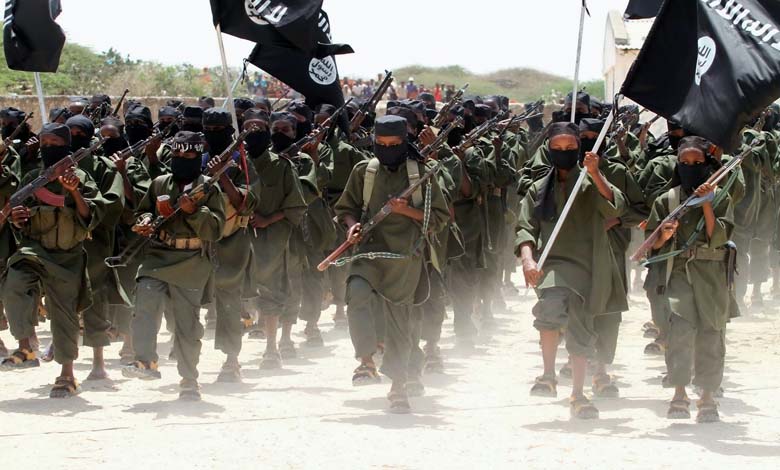Killing of Financial Leaders: A Major Blow to Al-Shabaab’s Funding Network in Somalia

Somali forces, supported by international partners, continue to tighten the noose around the terrorist group Al-Shabaab, dismantling its military and financial structures through a series of targeted operations that have resulted in the deaths of several senior leaders and fighters across different regions.
-
Somalia: Securing the Northern Mountains from ISIS and Fortifying the Capital Against al-Shabaab Attacks
-
Somalia Liberates Strategic City of Barire from Al-Shabaab
The Somali Ministry of Information announced that the National Army, in coordination with the National Intelligence and Security Agency and with the support of “international security partners,” killed 49 Al-Shabaab militants in an airstrike targeting the group’s positions in the village of Bulo Madino, in the Lower Shabelle region, on Tuesday evening.
The ministry’s statement added that the operation destroyed vehicles and weapons depots used by the group, stressing that it formed part of the second phase of the ongoing military campaign against the terrorist organization.
In a parallel operation in the Bay region of southwestern Somalia, Somali army units managed to eliminate Al-Shabaab’s senior financial officer, known as “Abu Khaled (Yahya),” along with his deputy and several bodyguards.
-
With the Support of International Partners: 15 Al-Shabaab Terrorists Killed in Somalia
-
Against the Tide: Al-Shabaab Terror Strikes Strategic Somali Town
A Core Financial Network Targeted
Colonel Ali Mohamed Aden, commander of the 8th Brigade of the 60th Division, stated that the operation was part of an ongoing campaign “to eradicate the group’s remaining cells in the region.” He added that the forces had “neutralized key figures within Al-Shabaab’s financial apparatus, which funded attacks in central and southern Somalia,” and dismantled a “core funding network” in the villages of Bulo Duro, Kur Ing Rugi, Dambalka, and Bur Ruring that financed armed operations in the southern regions.
According to Somali officials, the death of “Abu Khaled” marks a painful setback for Al-Shabaab’s financial infrastructure, which relies on a complex system of taxation and extortion imposed on local residents and merchants. This loss is likely to limit the group’s ability to finance terrorist attacks or buy loyalty in rural areas.
-
Dangerous Escalation by Al-Shabaab in Mogadishu: Motives and Strategic Implications
-
Military Operation in Western Somalia Against Al-Shabaab… ATMIS Under U.S. Criticism
This escalation in military operations follows a statement by Somali Prime Minister Hamza Abdi Barre, quoted by local media, in which he announced that government forces had killed more than 600 Al-Shabaab fighters, wounded 1,200 others, and recaptured 68 towns over the past three months. He described these efforts as part of a “comprehensive military, economic, and ideological war” against terrorism.
Similarly, Defense Minister Ahmed Moalim Faqi told the Senate that 800 militants, including 50 senior leaders, were killed last year in coordinated operations against both Al-Shabaab and ISIS. He noted that terrorist organizations are now experiencing an “unprecedented phase of weakness and decline” due to the loss of their field commanders.
-
Will Somali authorities succeed in drying up Al-Shabaab’s sources of funding?
-
What Are the Risks of Increasing Cooperation between the Houthis and Somalia’s al-Shabaab? Observers Respond
He also pointed out that the federal government faces challenges in acquiring heavy weaponry and securing military funding, emphasizing that “building a strong national army remains the decisive condition for achieving final victory over terrorism and restoring lasting stability in the country.”
According to Somali affairs analysts, these operations signal a qualitative shift in Somalia’s military and intelligence performance, moving from direct confrontation to targeting Al-Shabaab’s organizational and financial infrastructure. The widening scope of operations between the Lower Shabelle and Bay regions reflects a comprehensive strategy aimed at dismantling the group’s geographic and economic networks.
-
Why is the Somali group “Al-Shabaab” one of the most important arms of transnational terrorist networks?
-
New strategy by Al-Shabaab terrorist group in Somalia












